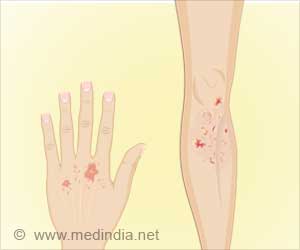Highlights:
- Along with monsoon also comes skin problems
- Exfoliate your skin during monsoon to remove the dead cells
- Apply a sandalwood pack for 20 minutes to relax and reduce all inflammatory reactions
Monsoon is the most anticipated season by all. However, monsoon causes a lot of skin problems, such as clogged pores and skin damage. //
Itching undoubtedly tops the list of skin problems. Here are a few tips.
Dealing with Itchiness During Monsoon
We all know the importance of exfoliating your skin, it is important to deep clean your face and removes all the dead cells to bring out fresh skin cells that give a natural glow, especially in monsoon season. Those who have oily skin can try this exfoliator.
‘Home remedies, such as using sunscreen, applying neem and sandalwood paste, and massaging with coconut oil, can help you get rid of itchy skin during monsoon.’
Homemade Exfoliators
Mix 5 tablespoons of Fuller’s earth with 5 tablespoons of orange peel and 5 tablespoons of sandalwood powder and keep it in a jar. When you wish to exfoliate, which should be at least twice a week in monsoon, then take 1 tablespoon of this mixture, mix it with rose water, and 2 drops of tea tree essential oil.
Apply the pack and leave it on for a minute or two. Massage your skin for a minute and rinse it off. The microbe-fighting properties make tea tree oil a natural remedy that helps in treating bacterial and fungal skin conditions, prevents infections, and promotes healing. Be careful, if you have sensitive skin then do a patch test first before using the oil as tea tree is a strong oil.
Six Tips to Get Rid of Itchy Skin
If your skin is itching, apply a paste comprising two spoons of baking soda and one spoonful of lemon water while taking a bath. Then wash it off after five to ten minutes. This will stop the itching if done every day.
Sandalwood is the go-to product for itchy skin. Apply a sandalwood pack to the affected area of the skin by combining sandalwood and rose water; leave it on for at least 20 minutes. This will instantly relax you and reduce all inflammatory reactions.
Coconut oil's anti-inflammatory and antibacterial properties aid in maintaining healthy skin. It is particularly efficient at treating skin infections and nourishing the skin. If you experience itching, massage coconut oil into the problem areas and allow your skin to absorb it fully.
Avoid long or frequent baths, as it can deplete the skin of its natural oils. Avoid using any alcohol-based skin products, antimicrobial soaps, or soap bars that are scented. Choose gentle soaps or a milk-based moisturizing body wash instead. Finish your showers and baths in under ten minutes, and moisturize the skin while it’s still damp.
Even if it may be cold outside, the sun is still somewhere in the distance drying your skin. Additionally, this time of year has the strongest UV radiation. If you intend to spend time outside, use sunscreen with an SPF of at least 25 and apply it about 30 minutes prior to going outside. When spending more time outside, reapply.
Neem possesses antimicrobial properties that are excellent for treating skin-related problems. It can also be applied to manage itching. Neem leaves can be applied topically after being crushed. For your bath, you can also use neem soap bars.
All skin types should take extra precautions during the monsoon to protect themselves from any skin damage.
Source-Eurekalert
















